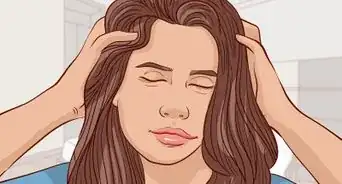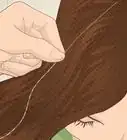This article was co-authored by Dedra Allen. Dedra Allen is a Cosmetologist and the CEO of Jdoah Beauty Salon in Thomasville, North Carolina. She has over 12 years of experience and specializes in working on short hair, relaxed hair, hair removal, and hair growth. She graduated with a Cosmetology degree from the Cutting Edge Institute.
There are 12 references cited in this article, which can be found at the bottom of the page.
This article has been viewed 28,032 times.
If you're on the lookout for new hair growth, you might be wondering exactly how you can spot it. Whether you're worried about hair loss, concerned about breakage, or just yearning for longer locks, we have the answers to your common questions. Just keep reading!
Steps
How long does it take for new hair to grow?
-
1Hair grows about .5 inches (1.3 cm) per month, on average. This means you will likely grow about 6 inches (15 cm) per year if you’re trying to grow it out. This might not sound like much, but you will be able to tell a difference when you look at your hair over time.[4]
-
2The total growth cycle lasts about 2-6 years. This sounds like a really long time, but don't worry. About 90% of your hair is usually somewhere in the growth cycle, which means you are pretty much constantly growing new hair. There are 3 stages of the cycle:[5]
- The anagen phase is when your hair actually forms a new shaft and is actively growing. This is the part of the cycle that lasts a few years. Remember, different parts of your hair are at different phases in the cycle.
- The catagen stage is the transition period between anagen and the final stage. Only 1% of the hair on your scalp is in this transitional stage at a time, so it's pretty hard to spot.
- The telogen stage is when your hair is resting. It lasts about 3-4 weeks, and during this time it's really common to shed some hair. It's normal to lose about 100 hairs per week. Then, new hair starts to grow and the cycle starts again.
What causes hair loss?
-
1Hormonal changes and medical conditions can cause hair loss. There are many physical reasons that you might have thinning hair or that you might experience hair loss. Some, like pregnancy, childbirth, and menopause are temporary. Other conditions such as alopecia areata, an immune disorder that causes patchy hair loss, might be more persistent.[6]
- Chemotherapy and radiation treatments can cause hair loss. This can be really upsetting and stressful, so ask your doctor for suggestions on how to deal with this.
- Certain medications and supplements might also lead to hair loss. Make sure to read the side effects each time you start taking something new.
- Talk to your doctor if you are concerned about hair loss. They might be able to help you find the cause and a solution.
-
2Hair loss can be hereditary. A natural condition called hereditary-pattern baldness is the most common cause of hair loss. It’s caused by a combination of genetics, the aging process, and hormones. This won’t hurt you and isn’t a cause for concern.[7]
- Men start typically start seeing the impact of male-pattern baldness in their 20s-30s, while women usually start seeing the impact during menopause.
-
3Some hairstyles and treatments might be the cause. It’s not always a great idea to follow hair trends, as some of them can harm your hair. Multiple permanents or hot oil treatments can lead to hair loss. Certain styles that pull your hair tight, like cornrows, can lead to a type of alopecia.[8]
- Bleaching your hair can also cause breakage, so look for more natural ways to color your hair. If you do bleach your hair, combing it when it's dry will also increase breakage. Make sure to gently comb it when it is wet.[9]
- Talk to your stylist about ways to keep your hair healthy. Remember, everyone’s hair is different, so your needs might be different from someone else’s.
Can I prevent hair loss?
-
1Being gentle with your hair might help it stay healthy. Make sure to gently comb and brush your hair and enjoy tugging on it. Using a detangler will help if you have long hair. You can also prevent hair loss by avoiding certain treatments, like hot oil treatments and perms.[10]
-
2Try adding some protein to your diet. This won’t prevent hair loss completely, but it might help slow the growth. Add some extra healthy protein to your diet. Talk to your doctor if you have any concerns. Good sources of protein include:[11]
- Chicken
- Fish
- Eggs
- Tofu
- Nuts
Expert Q&A
-
QuestionCan I speed up hair growth?
 Jenny TranJenny Tran is a Hair Stylist and the Founder of JT Hair Lab by Jenny Tran based in the Dallas, Texas metro area. With over seven years of professional hair styling experience, Jenny specializes in hair coloring, haircutting, and hair extensions. JT Hair Lab is an authorized carrier of R+Co and of Milbon and is committed to using products with quality ingredients.
Jenny TranJenny Tran is a Hair Stylist and the Founder of JT Hair Lab by Jenny Tran based in the Dallas, Texas metro area. With over seven years of professional hair styling experience, Jenny specializes in hair coloring, haircutting, and hair extensions. JT Hair Lab is an authorized carrier of R+Co and of Milbon and is committed to using products with quality ingredients.
Professional Hair Stylist No. All hair grows at around the same rate, but the longer the hair, the bigger the chance of it developing split ends that go higher and higher with time. Because of this, you may end up needing to cut more of your hair, which can "slow down" the growth. Keep it trimmed and healthy so it can grow better.
No. All hair grows at around the same rate, but the longer the hair, the bigger the chance of it developing split ends that go higher and higher with time. Because of this, you may end up needing to cut more of your hair, which can "slow down" the growth. Keep it trimmed and healthy so it can grow better.
References
- ↑ https://donovanmedical.com/hair-blog/2012/5/13/am-i-getting-new-hair-growth-or-is-it-breaking-off.html
- ↑ https://www.elle.com.au/health-fitness/baby-hairs-7339
- ↑ https://www.allure.com/story/baby-hair-or-breakage-how-to-tell-difference
- ↑ https://www.cosmopolitan.com/style-beauty/beauty/advice/a36065/tricks-for-growing-your-hair-really-really-long/
- ↑ https://www.uofmhealth.org/health-library/ug2799
- ↑ https://www.mayoclinic.org/diseases-conditions/hair-loss/symptoms-causes/syc-20372926
- ↑ https://www.health.harvard.edu/a_to_z/hereditary-patterned-baldness-a-to-z
- ↑ https://www.mayoclinic.org/diseases-conditions/hair-loss/symptoms-causes/syc-20372926
- ↑ https://pubmed.ncbi.nlm.nih.gov/17728947/
- ↑ https://www.mayoclinic.org/diseases-conditions/hair-loss/symptoms-causes/syc-20372926
- ↑ https://www.healthnavigator.org.nz/health-a-z/h/hair-loss-normal-or-hereditary/
- ↑ https://www.aad.org/public/diseases/hair-loss/treatment/tips
- ↑ Jenny Tran. Professional Hair Stylist. Expert Interview. 19 May 2020.
- ↑ Jenny Tran. Professional Hair Stylist. Expert Interview. 19 May 2020.
- ↑ Dedra Allen. Cosmetologist. Expert Interview. 3 August 2022.
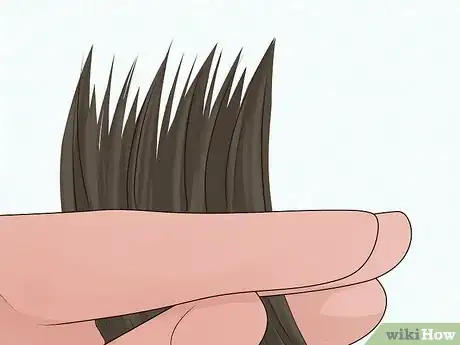
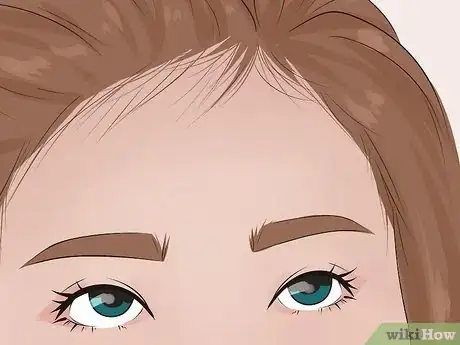
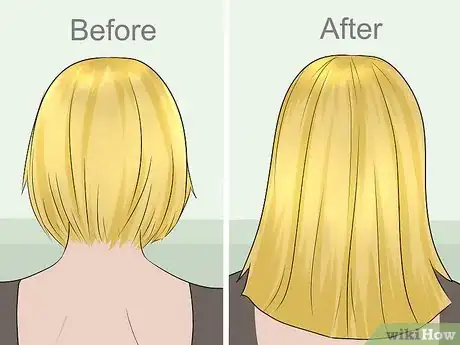

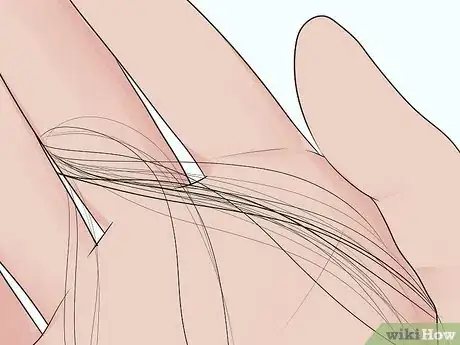



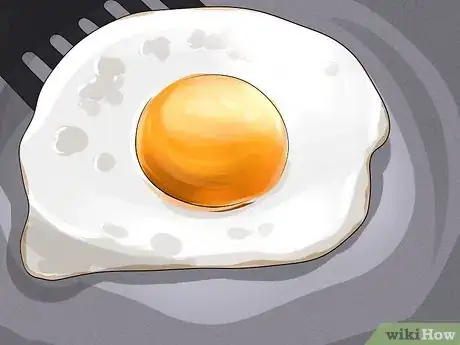
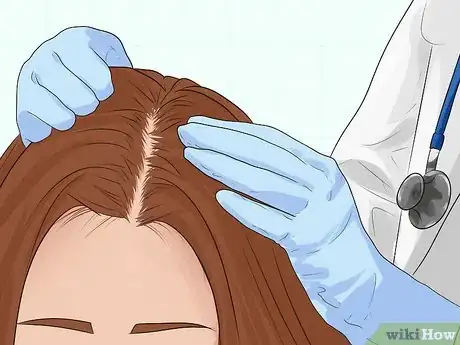
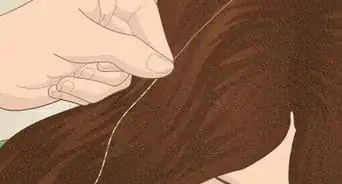


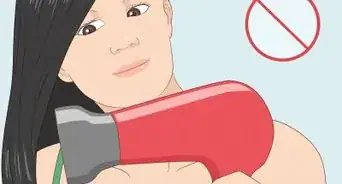
-Step-1-Version-8.webp)
